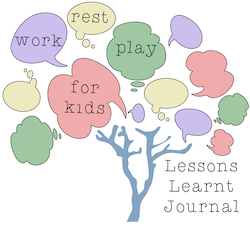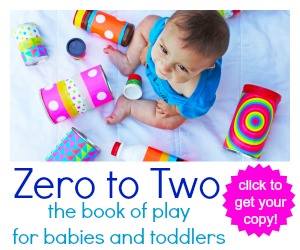Setting a good numeracy framework for kids has always fascinated me. In the past, Lessons Learnt Journal has shared fun math games to develop subitising skills, counting skills and numeral identification skills. In this Early Maths Games series, I will be sharing more easy and fun activities to develop and support early numeracy skills.
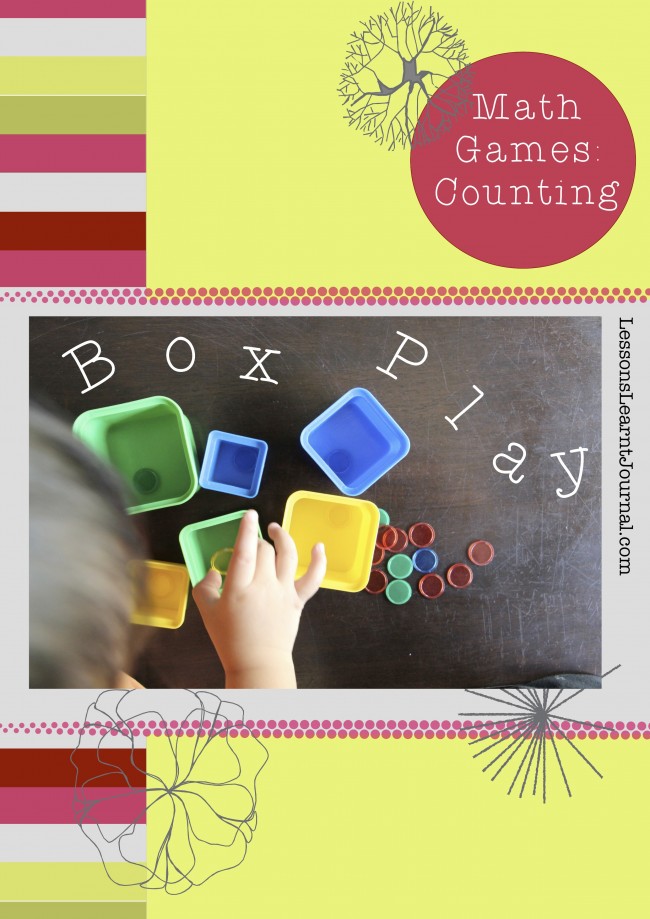
The kids have gone to bed. There’s a buh-zillion things to do. I turn on my computer and a thumbnail of a video pops up in front of me. The buh-zillion things to do can wait. I can’t resist clicking that play button and watching that 15 second video.
It’s a short clip of Mr N&M playing. They were 14 months old. They waddled. They babbled. They played. They were oh-so-cute!
Now Mr N&M are 4 and a half years old. They run, crash, jump and if they had wings, they would fly. They talk, and talk, and talk from the moment they get up to the moment they finally go to sleep. Where did the time go? They have grown so much. They still play loads; and are ever so keen to learn.
When working with young children, remember to:
- Show them how to do the task before expecting them to complete the task independently.
- Limit the range of numbers being presented when introducing a new mathematical idea.
- Provide children with a variety of math games which repeat the same mathematical understanding (e.g. counting, numeral identification, subitising, etc). To support this, I will be sharing a variety of counting games, numeral identification games, subitising games, etc as part of this Early Math Games series.
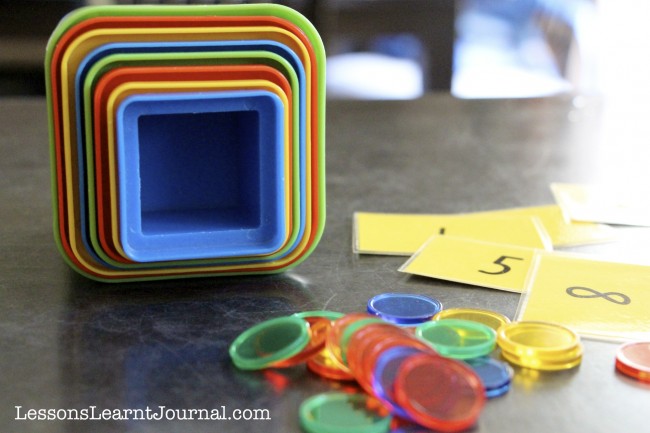
Math Games: {Counting} Boxes
Focus: Math Number, Counting
Desired Results: Match a number word to one, and only one, object when counting; (one-to-one correspondence).
Pre-Test: Show the child five counters and ask them, “How many counters do we have here?” As the child counts the counters, do they say the number word in the correct sequence from one to five and do they have a one word, one counter match?
Evidence of Learning: Present the child with five counters and ask them, “How many counters do we have here?” The child should know and name the correct forward number word sequence and have a one word, one counter match.
Teaching & Learning Experience:
You will need a collection of boxes and some counters.
Begin with three boxes and three counters before increasing to five, ten and twenty.
- Model the activity. Focusing only on establishing a one-to-one correspondence, place three boxes in front of the child and tell the child you have three counters. Drop a counter one at a time into each box.
- Let the child have a turn dropping a counter one at a time into each box.
- {Formative assessment}: Can the child drop one counter and only one counter into each box?
- Further develop the child’s counting skills by counting the counters as they are dropped into the box.
- {Formative assessment}: Can the child say the number word in the correct sequence having a one word, one counter match?
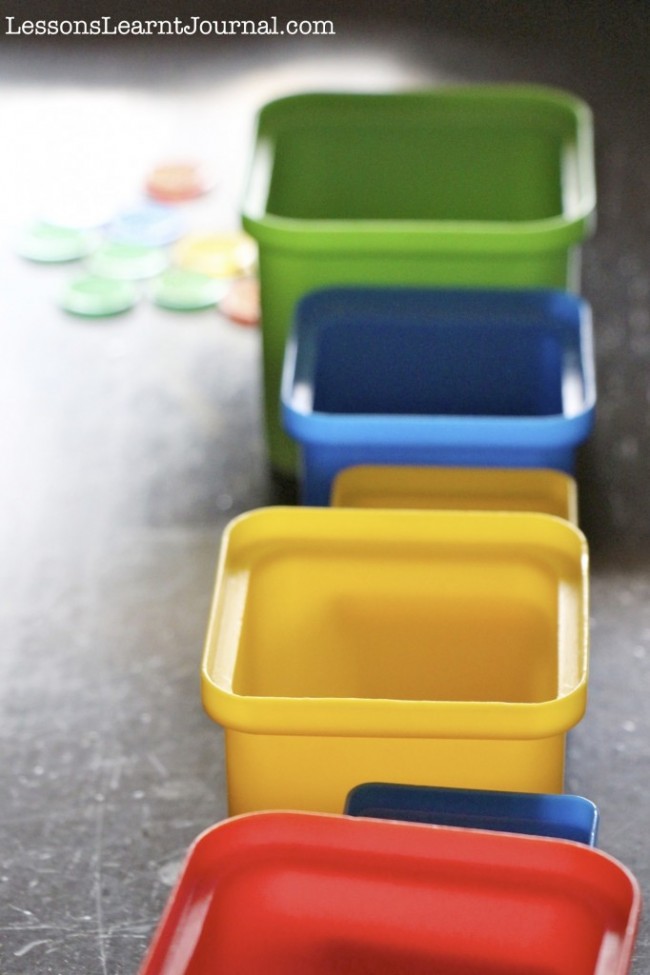
Extension Activities:
- After the child has counted the correct number of counters, ask him/her to find the corresponding numeral on a number card or number line. The early introduction of the number line establishes a good framework for understanding number in all it’s various forms; (natural numbers, integers, rational numbers, real numbers).
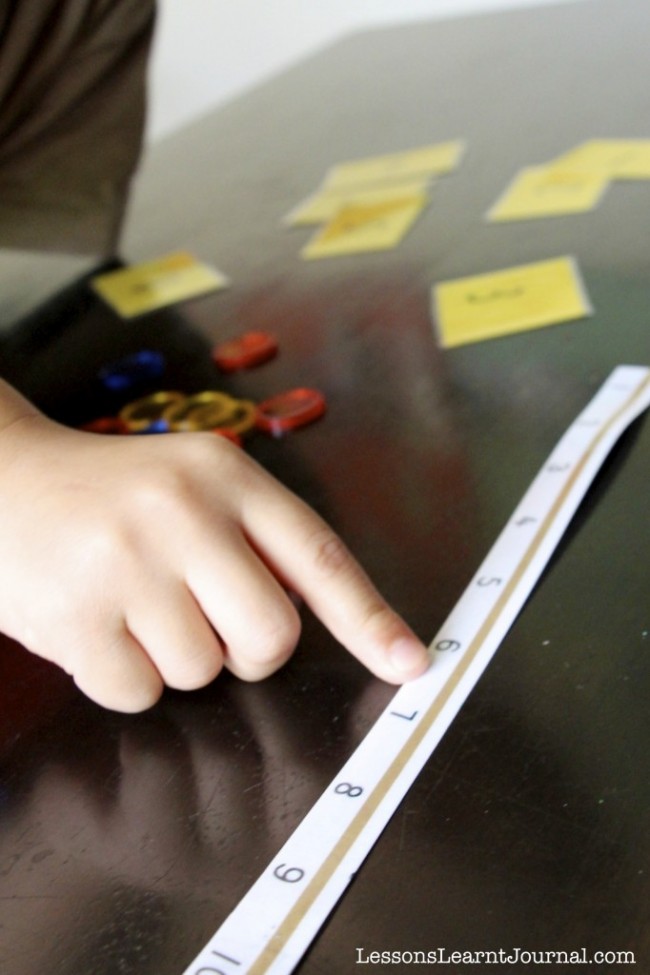
Don’t miss our next early math game: tiny teddies for another great way to learn counting, or browse through our many math games.
If you are new here, you might like to subscribe to our RSS feed or receive updates direct to your email. We have many fun ideas to share.

